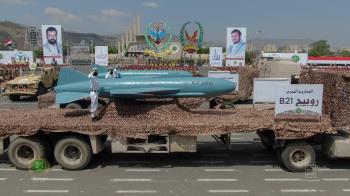Alwaght - Over the past four years, the Turkish government has always made attempts to persuade its Western allies of direct military intervention in Syria. However, given the recent developments in northern Syria, Turkey has decided to consider the possibility of a military action against its southern neighbor.
Alarm bells rang for Turkish government when the Kurdish forces, dubbed People's Defense Units (PYD), took full control of Tel Abyad strategic town in mid-June and managed to connect together two Cantons of Jazira and Kubani through Tel Abyad.
The fact that PYD has made advances in Syria and now is more powerful than before is regarded as one of dangerous consequences of flawed policies of Recep Tayyip Erdogan's government about Syria, because Ankara believes PYD is the Syrian wing of PKK group. For this reason, the day before the liberation of Tel Abyad, the Turkish president voiced his concern, reiterating that "the world must understand our sensitivity to the issue".
As the Kurdish forces wrested control over Tel Abyad, Turkey began to accuse the Kurds of genocide against the Turkmen and Syrian Arabs and even forced some Syrian groups to issue a statement in this regard; however, since no proof or evidence was provided about the genocide allegedly committed by the Kurds this policy of Turkish government proved ineffective.
Less than two weeks after the fall of Tel Abyad and Erdogan's concern over the developments, during a surprise attack, a number of ISIS terrorists invaded Kubani and massacred many inhabitants of this city that claimed lives of 150 innocent Kubani citizens. Kubani local authorities and those in Turkey, who oppose to Justice and Development Party (AKP), have accused Recep Tayyip Erdogan's government of letting ISIS terrorists enter Syria through the Turkish border so that ISIS terrorists can retaliate against the advances made by the Kurdish forces.
Although the Turkish government has denied the allegations, analysts investigating the evidence and the location where ISIS terrorists began to invade Kubani stressed that the attack could not have taken place without the knowledge of the Turkey. On Friday, while the Kurdish forces succeeded in dislodging most of the ISIS terrorists and tried to restore security to Kubani, Turkish president in a speech once again voiced his concern over the advances of the Kurds in northern Syria.
On Friday night, once again Recep Tayyip Erdogan accused the Kurds of ethnic cleansing and stated: "I am addressing the whole world: we will never allow a state to be formed in northern Syria, south of our border. We will keep up with our struggle whatever the cost is". However, Turkish President did not specify what he meant by 'cost'. The day after Erdogan's speech, a reports published in a Turkish newspaper showed that the government is seriously considering the direct military intervention in northern Syria.
Turkey-based Hurriyet Daily News cited official sources as saying "Turkey’s government plans more active military action to support the Free Syrian Army (FSA) against the Syrian regime as well as Kurdish and jihadist forces in Syrian territory, but the military is reluctant to do so, playing for time as the country heads for a new coalition government".
According to Hurriyet Daily News, "Chief of General Staff General Necdet Özel has delayed the government directive with justifications of international law and politics and the uncertainty of reactions from the Bashar al-Assad government in Syria, as well as from its supporters Russia and Iran, together with the United States.
It is not clear to what extent the Turkish army can resist Erdogan's demands. Nevertheless, the Turkish government's attempts for militarily intervention in Syria, where even the Americans have refused to do so, could incur heavy costs on Turkey and get Turkey trapped in the swamp of Syria.


























